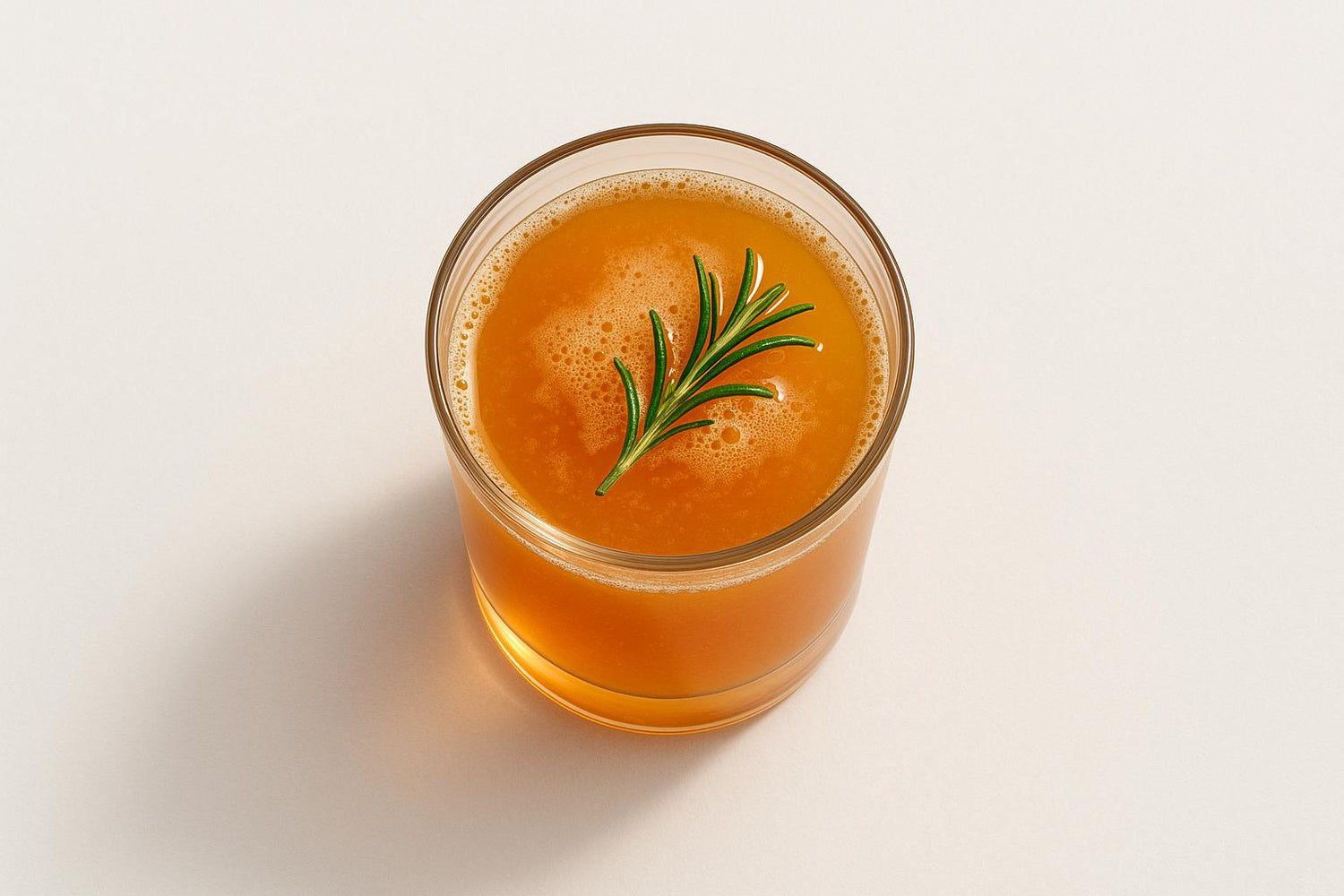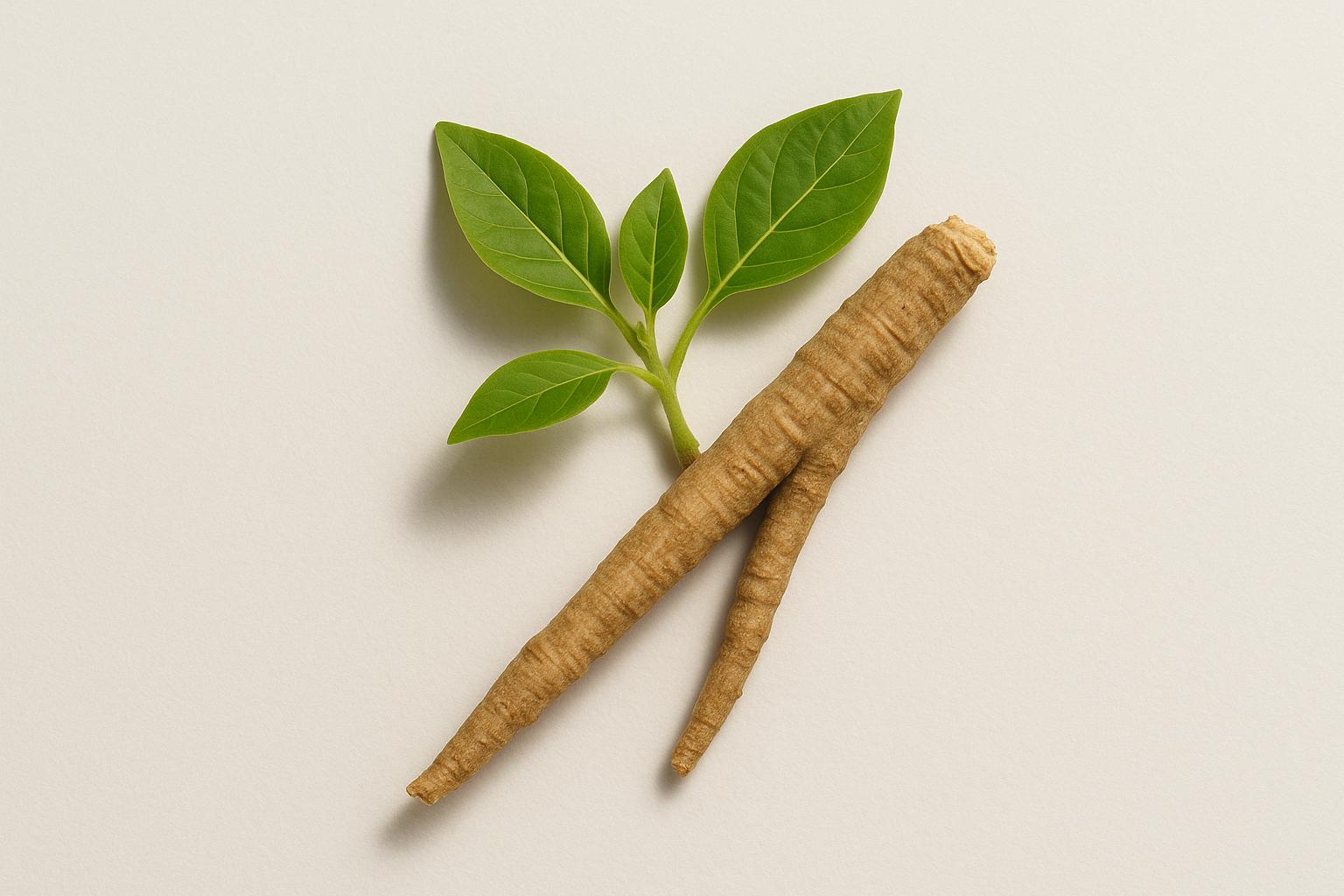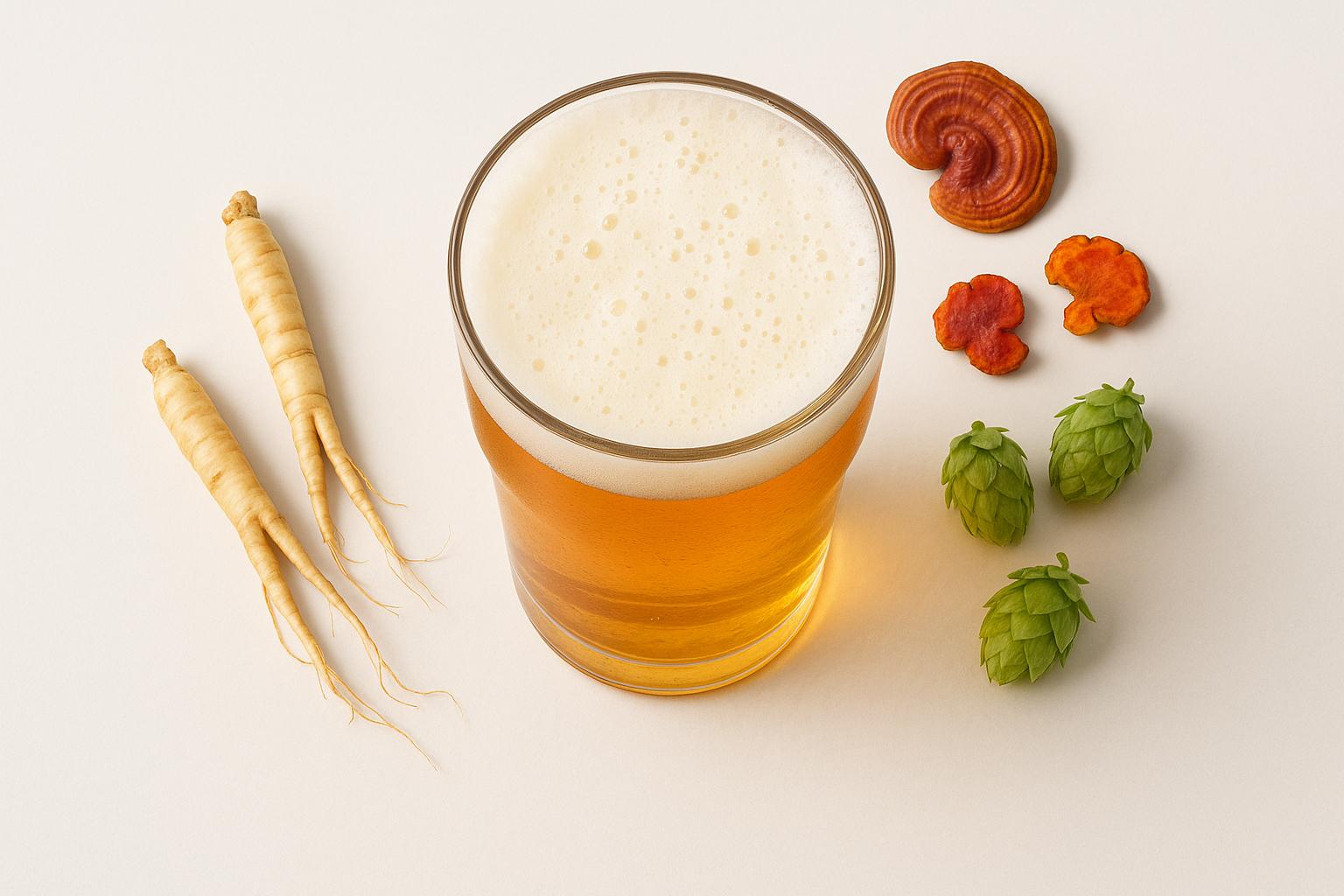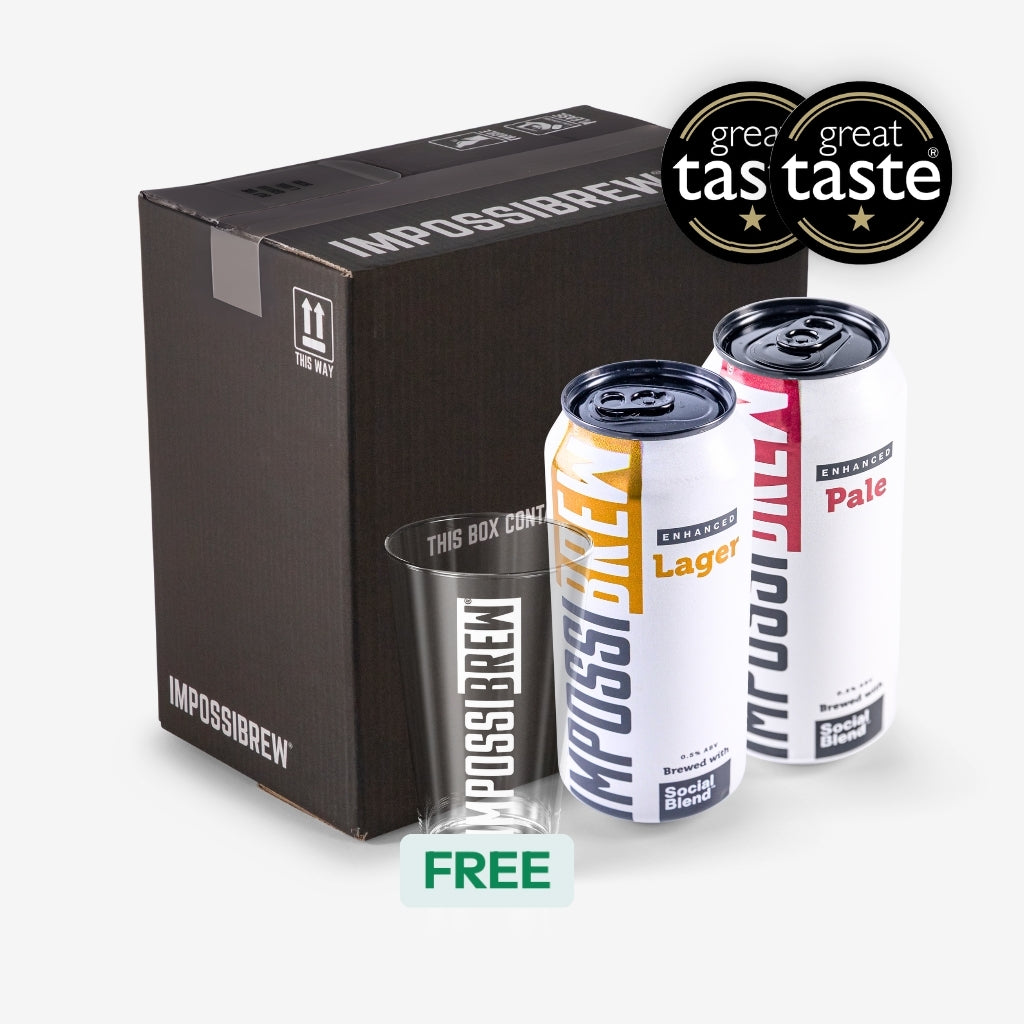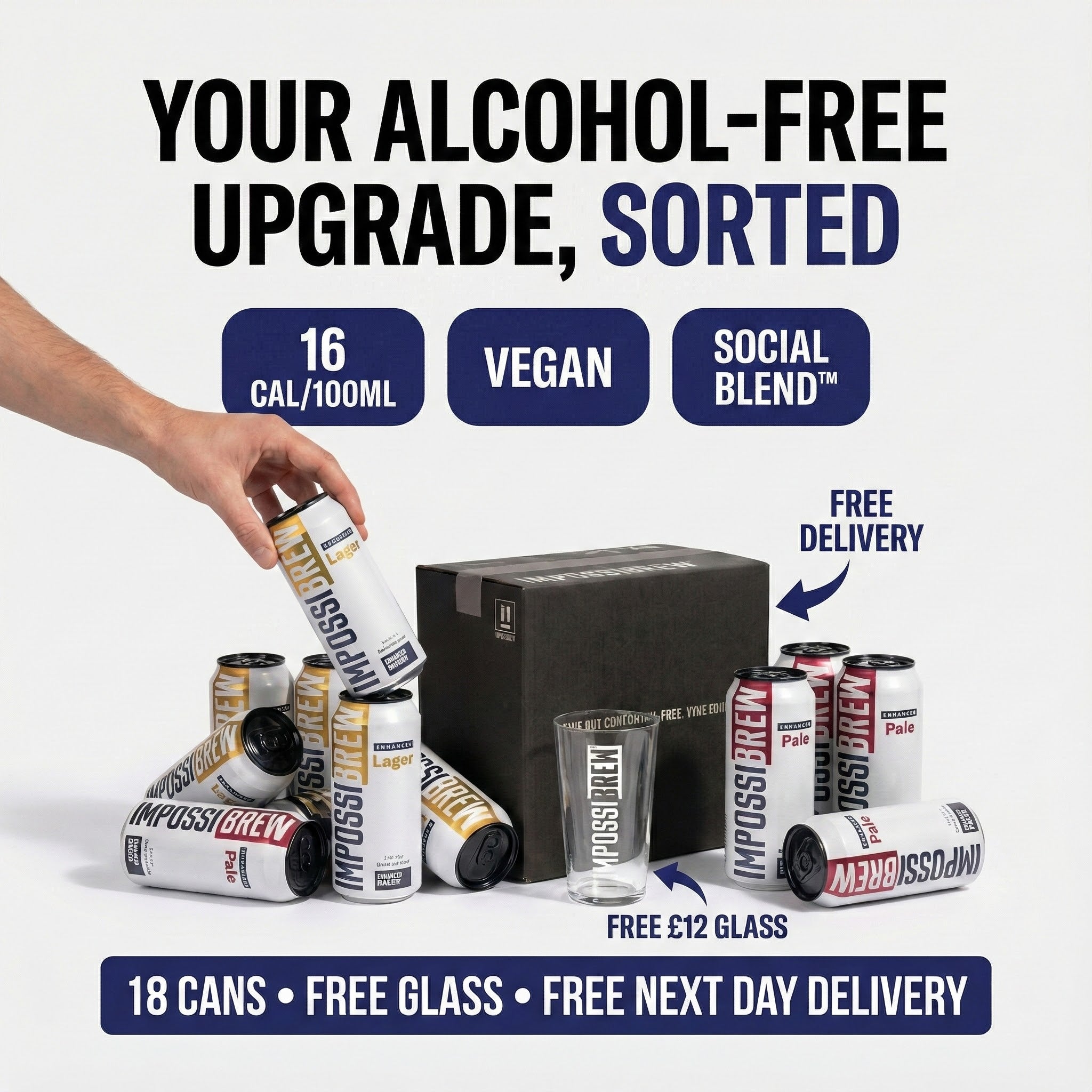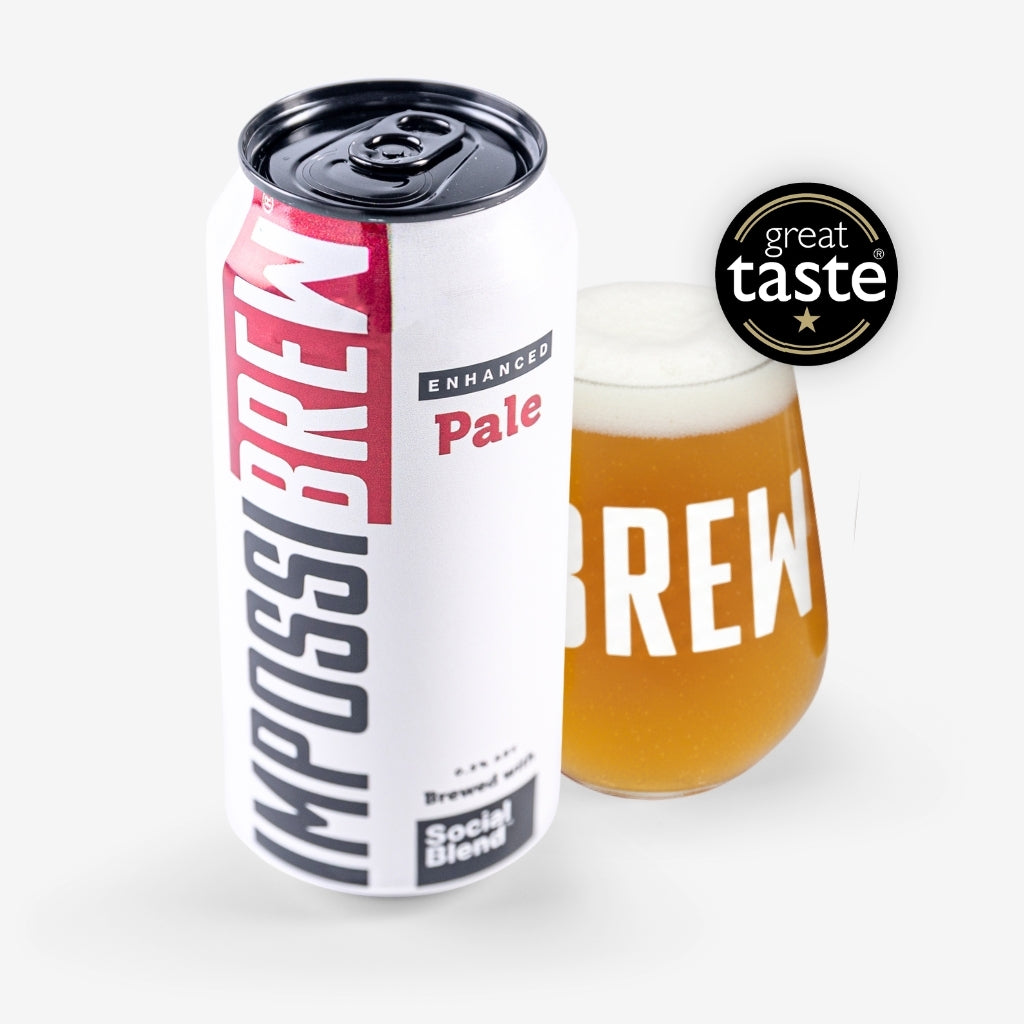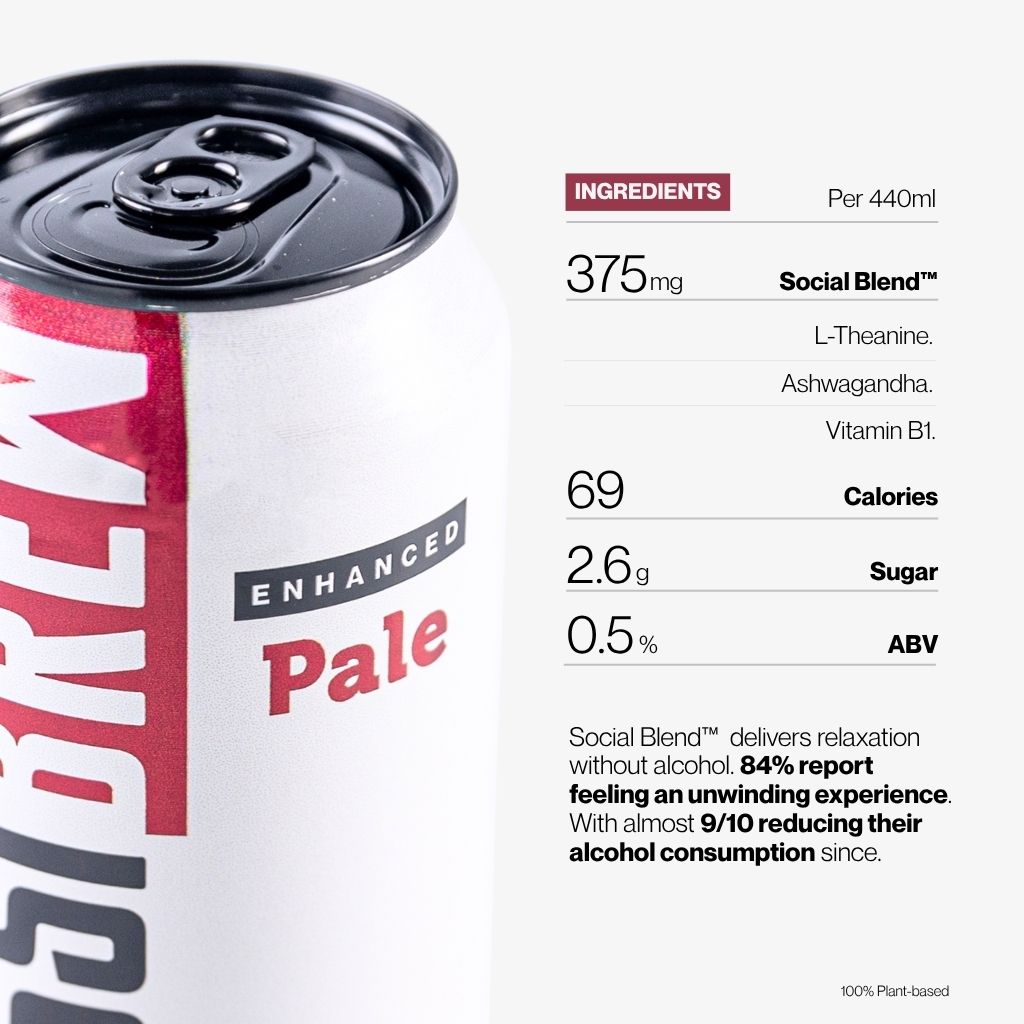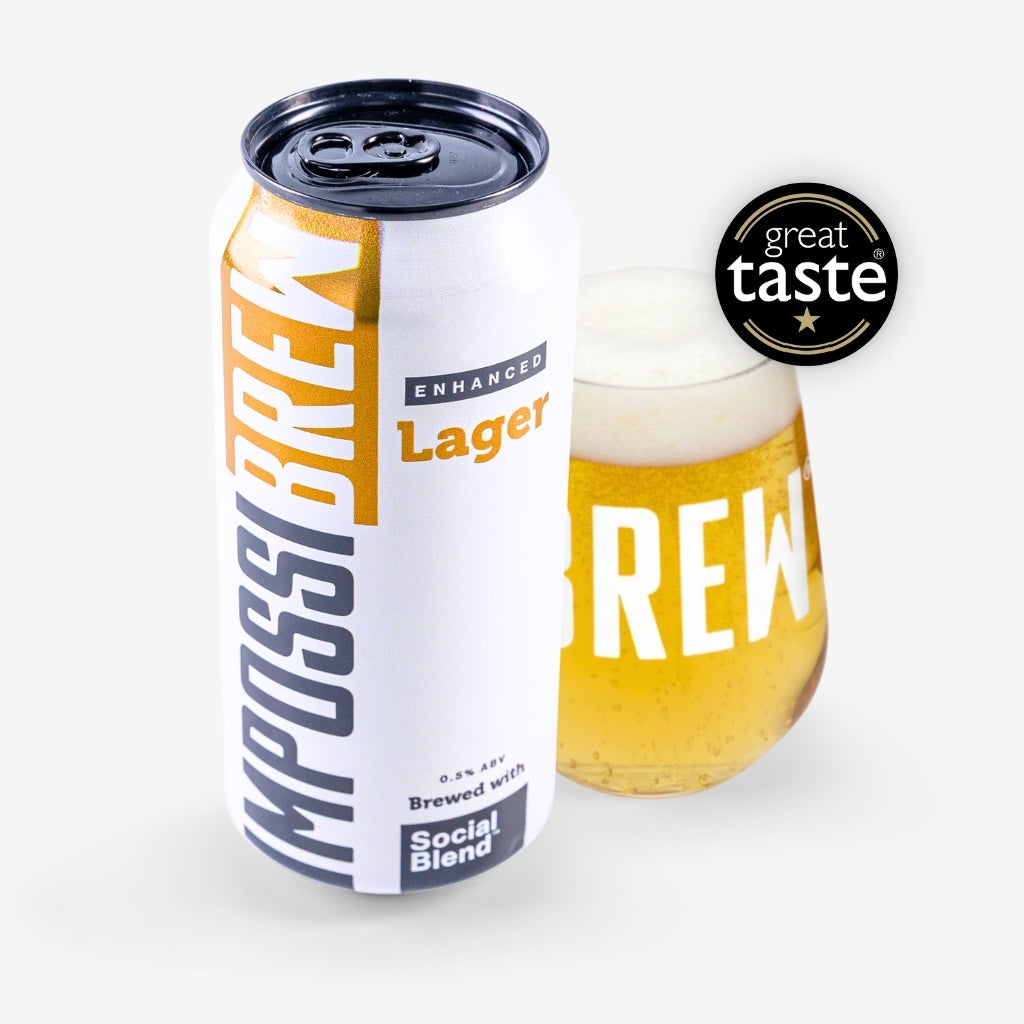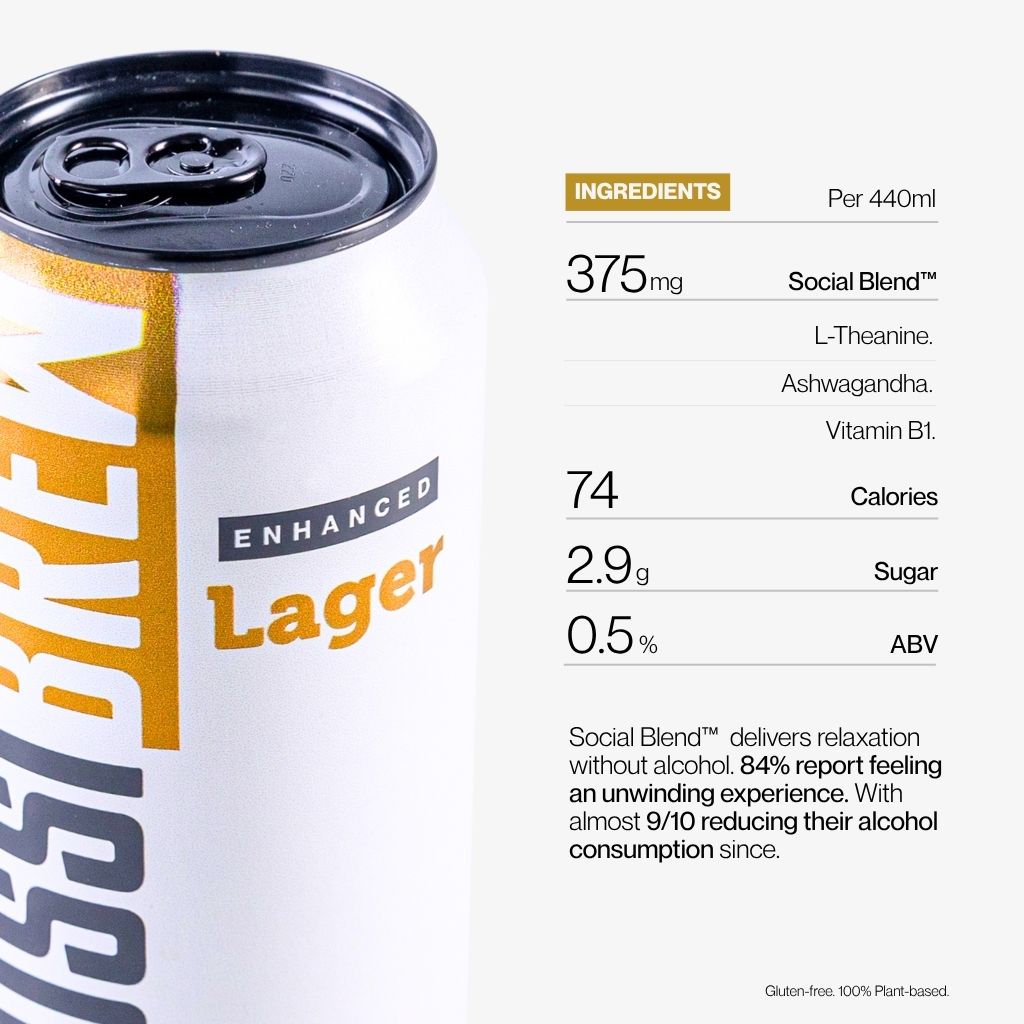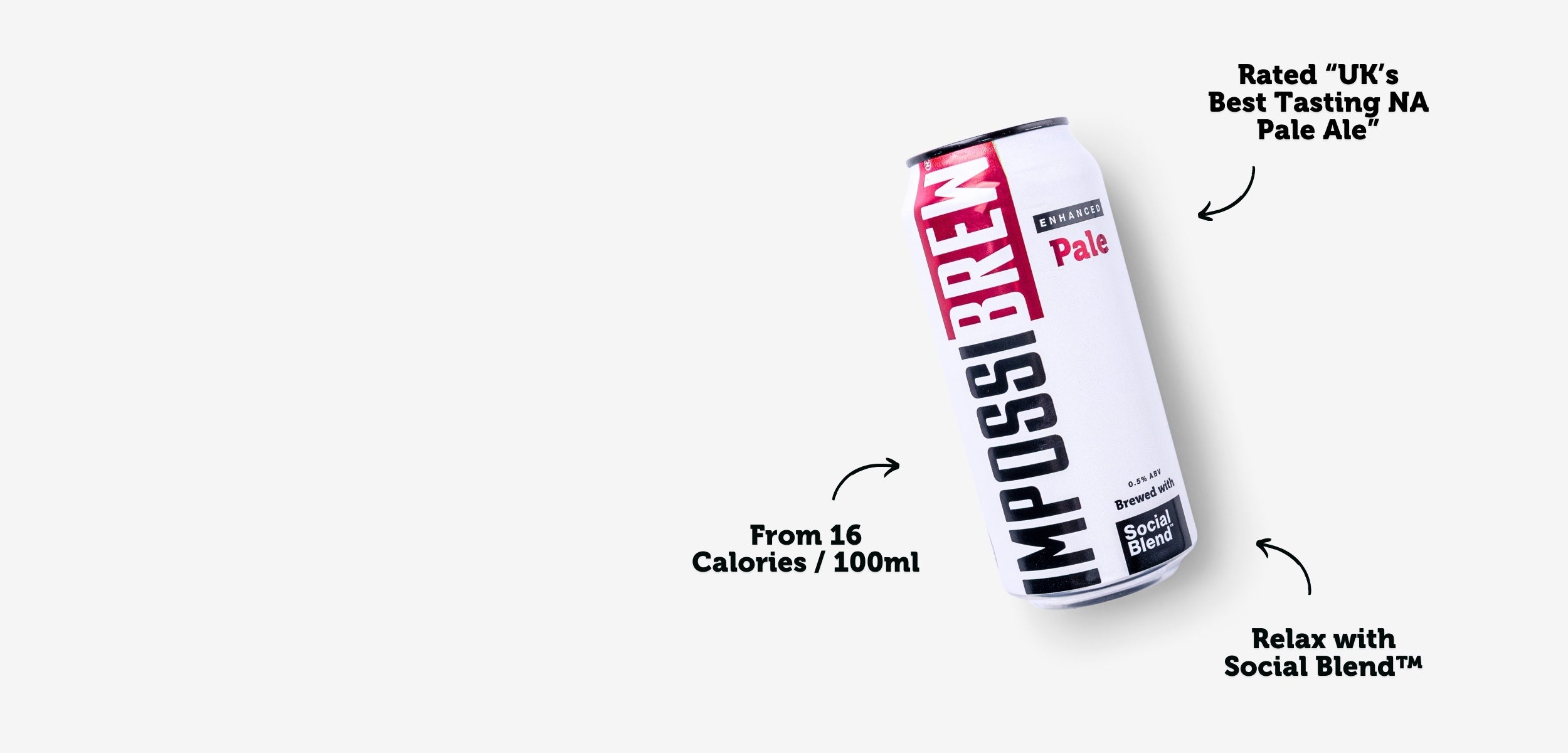Neuroprotective drinks are gaining traction as a way to support brain health and cognitive function. These beverages are formulated with ingredients like lion's mane mushroom, caffeine, taurine, and probiotics, which may improve memory, reduce inflammation, and promote nerve growth. However, safety concerns - such as ingredient interactions, dosage limits, and risks for specific populations - demand careful consideration.
Key Points:
- Market Growth: The nootropic market was valued at $3.75 billion in 2022 and is projected to exceed $11 billion by 2030.
- Ingredients to Watch: Lion's mane may stimulate nerve growth; caffeine boosts alertness but can interact with medications; probiotics support the gut-brain axis but pose risks for immunocompromised individuals.
- Safety Concerns: Ingredient interactions (e.g., caffeine with medications), risks for vulnerable groups (e.g., pregnant women, children), and dosage levels are critical.
- Regulation Gaps: Inconsistent global standards and limited long-term studies leave consumers and manufacturers navigating uncertainties.
While neuroprotective drinks offer potential benefits, understanding their safety profiles and consulting healthcare professionals is essential before incorporating them into your routine.
Key Ingredients in Neuroprotective Beverages
Neuroprotective drinks rely on specific compounds known to support brain health, each offering its own set of advantages and potential risks. Let’s explore some of the key ingredients, their benefits, and safety considerations.
Lion's Mane Mushroom (Hericium erinaceus)
Lion's mane mushrooms contain compounds like hericenones and erinacines, which are thought to promote brain, heart, and gut health. These substances may encourage the growth of brain cells, potentially protecting against cognitive decline, dementia, and Alzheimer's disease. For instance, a 2020 study highlighted that individuals with mild Alzheimer's showed marked improvements in cognitive test scores after taking 1 gram of lion's mane daily for 49 weeks.
Early research also suggests lion's mane might help with mild depression and anxiety, as demonstrated in a small study involving menopausal women. Its ability to stimulate nerve cell growth hints at possible benefits for recovery from nervous system injuries. For cognitive support, consuming 3–5 grams daily is often recommended. This mushroom can be enjoyed raw, cooked, dried, or brewed as tea. While generally considered safe, it should be avoided by those with allergies to mushrooms[4].
Taurine and Caffeine
Taurine and caffeine are common in neuroprotective drinks, often working together in complex ways. Energy drinks, for example, typically contain around 750 mg of taurine per 240 ml serving. Caffeine is known to raise blood pressure and heart rate, and when combined with taurine, these effects may intensify. Animal studies have shown that mice exposed to both compounds exhibited heightened activity levels[5].
Interestingly, the ratio of taurine to caffeine seems to influence their effects. Research on fruit flies suggests that a high taurine-to-caffeine ratio can promote sleep, while a lower ratio might suppress sleep even more than caffeine alone. Some evidence also indicates that taurine could dampen caffeine's positive effects on cognitive performance by inhibiting the central nervous system more broadly[7].
"If there are any interactions between caffeine and taurine, taurine might reduce the cardiovascular effects of caffeine."[8]
These findings underline the importance of carefully managing dosages when combining these two active ingredients.
Probiotics and Fermented Ingredients
Probiotics, often included in neuroprotective beverages, may enhance brain function through the gut–brain axis[10]. By restoring gut balance, reducing inflammation, and improving cell signalling, probiotics play a vital role in maintaining overall health. The gut, sometimes called the "second brain", is home to around 100 trillion microorganisms[12].
A 2022 study revealed that taking Lactiplantibacillus plantarum OLL 2712 for 12 weeks reduced inflammation and improved memory in older adults. Similarly, research has shown that Bifidobacterium breve strain A1 can aid hippocampal learning and memory in Parkinson’s disease mouse models[10].
However, there are safety concerns to consider, particularly for individuals with severe illnesses or weakened immune systems. Risks include infections, harmful byproducts, the potential transfer of antibiotic resistance genes, and quality control issues - such as products containing unlisted microorganisms. The regulation of probiotics varies widely, as they may be classified as dietary supplements, food ingredients, or drugs, depending on the jurisdiction. For these reasons, consulting a healthcare provider before adding probiotic-rich beverages to your diet is highly recommended. Ensuring proper dosage and product quality can help minimise potential risks[9][11].
Safety Considerations for Neuroprotective Drinks
Understanding the safety aspects of neuroprotective drinks is crucial, especially given their potential cognitive benefits. While these beverages may offer advantages, it’s important to weigh these benefits against possible risks, which can vary based on individual health conditions and circumstances.
Ingredient Interactions and Risks
The ingredients in neuroprotective drinks can sometimes interact in unexpected ways, particularly for those on medications or managing specific health issues. For instance, caffeine can interfere with various drugs. It may counteract the effects of blood pressure medications like beta blockers and diuretics, reducing their effectiveness. When combined with stimulants such as amphetamines or ADHD medications, caffeine can amplify side effects like jitteriness, a racing heart, and heightened anxiety [3].
Certain antibiotics, such as ciprofloxacin and norfloxacin, can slow down caffeine metabolism, leading to prolonged caffeine levels in the bloodstream - a scenario that can be dangerous [3]. Additionally, caffeine can undermine the sedative effects of medications like diazepam and lorazepam, making them less effective for managing anxiety or sleep issues [3].
Ginkgo leaf extract comes with its own set of risks. It may increase the likelihood of bleeding, particularly when taken with anticoagulants like warfarin, and can even trigger seizures, especially if consumed as roasted or raw seeds. Consuming more than 10 roasted ginkgo seeds daily can lead to severe side effects, while fresh ginkgo seeds are toxic and potentially fatal [13].
Clear dosage guidelines are essential to minimise these risks and ensure safer consumption.
Dosage and Long-Term Safety
The safety of neuroprotective drinks often hinges on proper dosing. The severity of side effects can depend on the amount consumed, the length of use, and individual health conditions [14].
Caffeine consumption is widespread. In the U.S., over 85% of adults consume caffeine regularly, averaging about 180 mg daily. In the UK, adults typically consume around 130 mg per day, while children consume about 35 mg daily [14]. Managing caffeine intake is a recognised concern in healthcare. A study found that 94% of physicians in Minnesota and Vermont advised reducing or eliminating caffeine for patients experiencing heart palpitations [14].
For those taking medications, consulting a healthcare professional is vital. Caffeine can reduce the effectiveness of certain drugs or lead to dangerous side effects, so it’s important to determine safe limits tailored to individual needs [3].
When it comes to ginkgo, specific precautions are necessary. For example, it’s recommended to stop using ginkgo at least two weeks before surgery to avoid complications related to blood clotting. People with diabetes should closely monitor their blood sugar levels, as ginkgo can interfere with diabetes management [13].
Personal health factors play a significant role in determining safe consumption, underscoring the need for tailored advice, particularly for vulnerable groups.
Population-Specific Considerations
Some groups are more vulnerable to the risks associated with neuroprotective drinks. These include pregnant and breastfeeding women, children and adolescents, young adults, and individuals with underlying health conditions [14].
Pregnancy and breastfeeding require special caution. Ginkgo, for example, may lead to early labour or excessive bleeding during delivery. Due to a lack of reliable data, it’s also recommended to avoid ginkgo while breastfeeding [13]. The American Dietetic Association advises pregnant women to limit caffeine intake to no more than 300 mg per day [16]. Since many pregnant women take medications - 7 in 10 use at least one prescription drug - potential interactions are a key concern [15].
Children and teenagers also face unique risks. In the U.S., about 75% of children aged 6 to 19 consume caffeine [14]. However, the American Academy of Pediatrics strongly advises against caffeine and other stimulants in energy drinks for this age group, stating:
"Rigorous review and analysis of the literature reveal that caffeine and other stimulant substances contained in energy drinks have no place in the diet of children and adolescents" [14]
As for ginkgo, it may be safe for children when used short-term, but ginkgo seeds should be avoided entirely due to their toxicity [13].
Individuals with certain health conditions should exercise caution. Those with bleeding disorders should avoid ginkgo, as it may worsen their condition. Similarly, people with a history of seizures are at risk, as ginkgo can act as a trigger [13]. For individuals with glucose-6-phosphate dehydrogenase (G6PD) deficiency, ginkgo may lead to severe anaemia and should be used sparingly or avoided altogether. Additionally, those trying to conceive should consult a healthcare provider, as ginkgo may affect fertility [13].
Caffeine also requires careful management in people with anxiety disorders, heart conditions, or sleep issues, as it can exacerbate symptoms. For individuals with cardiac disease, the potential risks of caffeine are often a point of concern [14].
Comparison of Neuroprotective Ingredients
When evaluating neuroprotective drinks, it's essential to weigh the benefits and risks of each ingredient. Factors like dosage, individual health conditions, and potential interactions play a critical role in determining their safety and effectiveness.
The growing market for these functional beverages highlights the increasing consumer interest in scientifically supported products designed to enhance cognitive and overall health.
Benefits and Risks Table
| Ingredient | Primary Benefits | Evidence Level | Common Side Effects | Safety Notes |
|---|---|---|---|---|
| Lion's Mane Mushroom | May support nerve growth factor production; could enhance cognitive function and memory | Moderate (animal studies, limited human trials) | Generally well-tolerated; occasional digestive upset | Safe for most adults, but avoid if allergic to mushrooms |
| Caffeine | Boosts alertness, focus, and reaction time; aids physical performance | Strong (extensive research) | Jitteriness, insomnia, increased heart rate, anxiety | Up to 400 mg daily is considered safe for healthy adults; caution for heart conditions |
| Taurine | Promotes cardiovascular health; may reduce oxidative stress and support liver function | Moderate to strong | Rare at normal doses; nausea possible at high doses | Generally safe; intake rises significantly with energy drinks |
| Probiotics | Improves gut health; emerging evidence for gut–brain connection benefits | Moderate (growing research) | Initial mild digestive changes; rare infections in immunocompromised individuals | Safe for most; use caution in individuals with severe immune deficiencies |
| Ginkgo Biloba | May enhance circulation and cognitive function | Mixed (conflicting study results) | Headaches, dizziness, stomach upset, increased bleeding risk | Avoid with blood thinners; stop use about two weeks before surgery |
To put it into perspective, many functional beverages contain an average of 174 mg of caffeine per serving - roughly equivalent to two cups of brewed coffee. This amount is well within the safe daily limit of 400 mg for healthy adults. However, when caffeine is combined with other active ingredients, its effects can be amplified or altered, which is something to keep in mind when assessing these drinks [18].
Synergistic Effects and Interactions
The combination of ingredients in neuroprotective drinks can sometimes result in synergistic benefits, depending on their dosages and interactions. For instance, pairing caffeine with green tea extract has been shown to increase calorie burning and raise blood levels of glycerol and free fatty acids [18].
Taurine, in particular, interacts with other compounds in noteworthy ways. Studies suggest taurine can reduce liver oxidative stress when consumed with alcohol or acetaminophen [6]. Additionally, it inhibits cytochrome P450 2E1, an enzyme responsible for metabolising over 70 substances, including commonly used anaesthetics, analgesics, antidepressants, and antibiotics [6]. These interactions highlight the importance of understanding how ingredients work together, especially in complex formulations.
Natural vs Synthetic Sources
A common question is whether natural ingredients are better than their synthetic counterparts. Interestingly, synthetic versions can match natural ones in terms of effectiveness and safety. In some cases, they even offer advantages like improved purity, consistency, and reliability [17].
Dosage Context
As with any supplement or functional drink, the amount consumed is crucial in determining both short-term and long-term safety. For example, while the average diet provides between 123 and 178 mg of taurine daily, a single 8-ounce (around 240 ml) energy drink can significantly increase this intake [6]. Overconsumption of such beverages may lead to short-term issues like headaches and insomnia, and excessive use over time could pose risks to cardiovascular and neurological health [18].
For anyone considering these drinks - particularly those taking medications - it's wise to consult a healthcare professional or pharmacist. This ensures that combining these ingredients with prescription or over-the-counter medications doesn’t result in adverse effects or contraindications [2].
sbb-itb-a752bf8
Regulatory and Research Gaps
The neuroprotective beverage industry is navigating a maze of inconsistent regulations and limited long-term studies, which exposes gaps in oversight and raises questions about safety and growth potential.
Need for Standardised Guidelines
One of the biggest challenges lies in the lack of consistent global standards. The regulatory framework for neuroprotective drinks varies wildly from one country to another, creating confusion and potential safety risks. This inconsistency not only complicates international business operations but also leaves consumers vulnerable to products that may not meet uniform safety requirements.
In the UK, the Medicines and Healthcare products Regulatory Agency (MHRA) oversees health-related products. According to Natalie Richards and Ian Hudson of the MHRA, the agency’s mission is to "regulate medicines, medical devices and blood components for transfusion in the UK. The Agency plays a leading role in protecting and improving public health, and supports innovation through scientific research and development" [19]. However, functional beverages often sit in a grey area between food and medicine, making them harder to regulate.
Globally, the situation is just as fragmented. In South Korea, for instance, over 60 plant- and algae-based ingredients are approved for use in functional foods, including drinks. Meanwhile, the EU relies on safety assessments for botanicals before they can be added to products. Thailand has its own list of approved botanicals, but combinations with caffeine or energy drink formulations are treated differently [20]. Without a unified baseline, consumer safety can be compromised, and businesses face hurdles when navigating these diverse regulations.
The numbers illustrate the urgency of this issue. By 2025, the global functional food market is expected to hit USD 228.79 billion, growing at a rate of about 8% annually since 2022. In the US alone, the functional beverage sector was valued at USD 99 billion in 2019 [20]. These figures highlight the pressing need for clear, standardised guidelines to ensure safety and foster industry growth.
Long-Term Research Needs
Another challenge is the lack of long-term studies on neuroprotective beverages. While short-term effects are often studied, we still don’t know enough about their chronic impact on cognitive health [22]. Given that around 85% of adults in the US consume caffeine regularly, it’s crucial to understand its long-term neurological effects [22].
Gender-specific studies are also lacking. Most research on taurine, for example, has focused on males [5], leaving a significant gap in understanding its effects on females. Genetic differences further complicate the picture. Variants in genes can influence how individuals metabolise caffeine, affecting not just the brain but other organs like the heart. For instance, 15–20% of people are homozygous for thymine, while about 35% are homozygous for cytosine, which alters their response to caffeine [14][22]. Research needs to delve deeper into these genetic factors.
Vulnerable groups, such as pregnant women, remain another under-researched area. Studies should examine how caffeine affects foetal brain development and the long-term health of offspring [14]. Similarly, the elderly, who often use multiple medications, need more focused research to understand how these beverages interact with treatments for neurodegenerative diseases [23].
Concerns about caffeine levels in energy drinks also persist. In 2013, 18 scientific and medical experts informed the FDA Commissioner that there wasn’t enough evidence to prove the safety of high caffeine levels in these products. They highlighted strong links between excessive caffeine consumption and adverse health outcomes, particularly in children, adolescents, and young adults [14]. This underscores the need for more robust research and better consumer education.
Consumer Education and Awareness
The lack of clear regulations and the variety of claims made about neuroprotective beverages make it difficult for consumers to make informed decisions. Misleading claims can shape buying habits, making accurate and transparent communication essential [20].
The MHRA plays a key role in consumer protection. For instance, during Operation Pangea in 2016, the agency seized £13.4 million worth of counterfeit and unlicensed medicines and devices in the UK, demonstrating the risks posed by unsafe products [19]. However, functional beverages don’t always fall under such stringent monitoring.
The MHRA’s Yellow Card Scheme, which has logged over 800,000 adverse drug reaction reports since its inception, highlights the importance of ongoing safety monitoring. Unfortunately, most functional beverages aren’t covered by these systems [19]. Educating consumers about the science behind botanicals and how to evaluate product claims is vital for empowering them to make better choices.
To make matters more confusing, regulatory definitions differ across regions. In the US, products are often labelled as dietary supplements, while Japan refers to them as functional foods. India categorises them as traditional herbal products [21]. This patchwork of definitions adds to the complexity for consumers trying to navigate the market.
Finally, it’s worth noting the stark contrast between the rigorous process of developing new medicines - costing around £1.15 billion and taking 12.5 years - and the relatively low barriers for functional beverages. This discrepancy raises questions about the balance of safety assurances between these two categories [19].
Conclusion and Key Takeaways
Neuroprotective beverages may support cognitive health, but they also come with safety challenges. Research highlights the potential of ingredients like cocoa flavanols and pomegranate juice. For instance, consuming 500–750 milligrams of cocoa flavanols daily has been shown to improve memory and brain function. Similarly, studies reveal that four weeks of pomegranate juice intake can enhance both verbal and visual memory performance [1][24].
On the flip side, these benefits are offset by significant risks. Many of these drinks are loaded with sugars, artificial sweeteners, caffeine, and taurine, which can contribute to issues like obesity and heart disease [24]. Alarmingly, younger populations are especially vulnerable. Around half of energy drink-related calls to the United States National Poison Data System involve children under six, and over 45% of caffeine intoxication cases are reported in children or teenagers [5].
Excessive consumption is another concern. The Mayo Clinic advises limiting taurine intake to 3,000 mg per day, but energy drinks often combine this with 80–320 mg of caffeine per serving, alongside dietary sources that can add 40–400 mg of taurine. Pregnant women and children are advised to limit caffeine to 200 mg and 100 mg daily, respectively [5].
The lack of consistent regulations further complicates safety. With the global energy drink market projected to reach approximately £48 billion in the next five years, the absence of stringent oversight raises concerns [5]. Unlike other caffeinated products, energy drinks are marketed as food supplements, bypassing stricter regulatory scrutiny. Educating consumers about the ingredients in these beverages is essential, as experts stress the importance of understanding what goes into functional drinks [24][5].
Long-term safety remains a grey area. Research on dosages and prolonged use is limited, leaving questions about genetic factors, gender-specific effects, and interactions between ingredients unanswered. Large-scale studies are urgently needed to address these gaps [25]. Looking ahead, integrating personalised approaches - such as targeted supplementation, dietary adjustments, and an understanding of microbiota–gut–brain dynamics - could offer more effective neuroprotection [25].
Ultimately, the future of neuroprotective beverages hinges on aligning scientific research with robust safety standards to ensure they deliver meaningful benefits without undue risks.
FAQs
Are neuroprotective drinks safe for pregnant women or people with existing health conditions?
Are Neuroprotective Drinks Safe for Everyone?
Neuroprotective drinks might not be the best choice for everyone, particularly for pregnant women or those with specific health conditions. Some ingredients, like caffeine or certain herbal extracts, could carry potential risks. For instance, pregnant women are often advised to steer clear of substances that might interfere with foetal brain development. Similarly, individuals with pre-existing health issues could face unwanted side effects depending on the drink's ingredients.
If you're pregnant, managing a medical condition, or taking regular medication, it’s wise to speak with a healthcare professional before adding any functional beverages to your routine. Better safe than sorry!
Are caffeine and taurine safe to combine in neuroprotective drinks, and how do they affect their effectiveness?
The pairing of caffeine and taurine in neuroprotective drinks plays a key role in their impact on the body. Taurine is thought to help reduce some of caffeine's less pleasant effects, like jitteriness. However, consuming large amounts of both can lead to unwanted side effects, such as an increased heart rate and higher blood pressure.
In moderation, this combination might improve focus and offer a short-term energy lift. But going overboard can amplify stimulant effects and put extra strain on the cardiovascular system. It's crucial to use these drinks sensibly, considering personal tolerance levels and overall health.
What challenges do neuroprotective drinks face in ensuring safety and consistent quality for consumers?
The neuroprotective drinks market encounters several hurdles in ensuring both safety and consistency. Strict regulations, including safety assessments and clinical trials, often slow down product launches and make quality control more complex. Adding to this, the absence of well-defined guidelines for nootropic ingredients can result in inconsistent standards, leading to risks like misleading claims or uneven product quality.
Such regulatory gaps can undermine consumer confidence and disrupt market stability, leaving buyers uncertain about the safety and effectiveness of these products. Tackling these challenges is crucial to upholding quality standards and giving consumers the confidence to enjoy these functional beverages.

